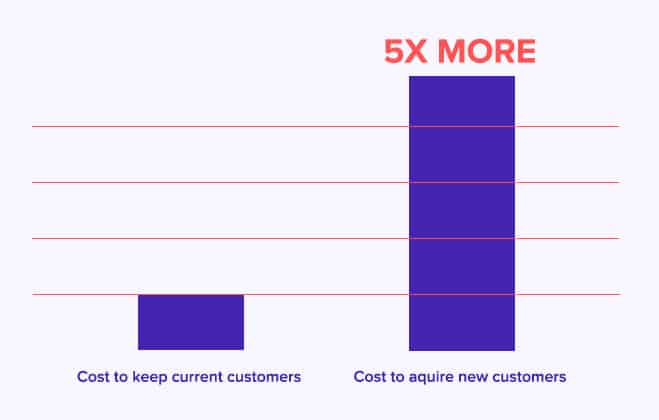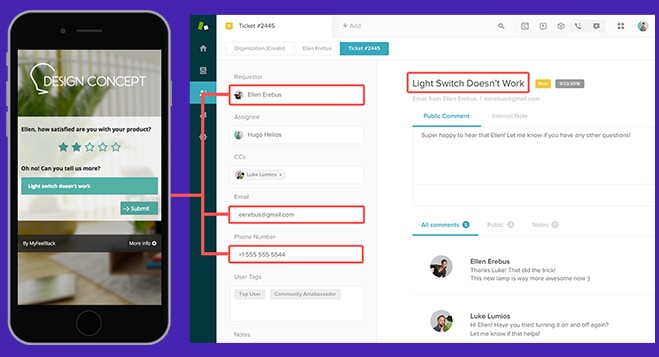Customers have increasingly high demands and expectations when it comes to after-sales service. Improving its performance and quality will have an impact on both revenue and customer loyalty. So, what can be done in practical terms to improve this service? Why after-sales service should be a pillar of your business After-sales service is a key...
Customers have increasingly high demands and expectations when it comes to after-sales service. Improving its performance and quality will have an impact on both revenue and customer loyalty. So, what can be done in practical terms to improve this service?
Why after-sales service should be a pillar of your business
After-sales service is a key element of the customer relationship in general. It encompasses all the services a customer receives following a purchase.
These services can be very diverse and depend, in part, on your business activity. They may concern product delivery, setup, repair and maintenance services, and more broadly, all remote interactions (telephone, email, etc.) with customers who have purchased something from your company.
After-sales is one of the main components of customer service.
Discover The 7 keys to offer the best customer service
After-sales service is crucial for at least two reasons:
- The quality of your after-sales strongly influences the buying decision, particularly for larger purchases. In a nutshell, your customers are not just buying a product, they are also buying a service.
- Secondly, the quality of after-sales and, more broadly, customer relations, is essential for building loyalty. It costs far less to build loyalty than to acquire new customers. Discover the 7 reasons to build customer loyalty here.

As a general rule, you should always bear in mind that it is not enough to offer good quality products, you also need to offer services that customers appreciate. The latter influence customer satisfaction just as much as the nature or quality of the products they purchase.
In other words, you can offer the best products on the market, but if customers are dissatisfied with your service, it will be impossible to sustain growth.
The quality of customer service, and more specifically after-sales, plays a determining role in your brand image. It is also the foundation upon which the relationship of trust and emotional connection is built between you and your customers.
Knowing your customers well to offer the best after-sales service
Once you understand the importance of a quality after-sales service, there remains one key practical question – how can it be improved?
First of all, the customer should be your main focus. Your customers generate your revenue. Listen to them. In short, become customer-centric.
Your company’s areas of development (improving your after-sales service, for example) should be based on customer feedback. Build your strategy on customer reviews and opinions, and on solid customer knowledge.
The best way to improve your after-sales service is to ask your customers what they think about it via satisfaction surveys. This has become widespread practice and customers who contact after-sales will often receive an email or an SMS immediately afterwards, asking if they were satisfied with the service provided.

There are several customer knowledge software packages that enable you to design smart customer surveys. This means that you can target your respondents in an extremely precise manner. The aim of course being to send a survey to anyone who has just interacted with after-sales.
Quality respondent targeting allows to obtain highly qualified data. You will be able to better identify your after-sales service strengths and weaknesses through the data collected from these surveys. With some customer knowledge tools, you can then integrate this data, in real time, into your CRM or customer service software to ensure the best possible follow-up.
With MyFeelBack for example, if a customer expresses dissatisfaction in a survey, you can create a ticket in Zendesk.

Such integration methods make it possible to efficiently manage your after-sales support and to react to any negative feedback in real time. Responsiveness is widely known to be the key to quality after-sales service.
The most efficient way to improve it and to adapt it to your customers’ ever-changing needs, is to know your customers well and monitor their feedback.
The internal flow of information determines the quality of service
To ensure an efficient after-sales service, it is also important to monitor the feedback of those who, within your company, are in direct contact with customers. By adopting a horizontal or cross-functional way of working, your after-sales employees will be able to quickly share any feedback following a customer interaction.
Feedback provided by your after-sales teams will enable you to better understand that provided by customers. It is easier to explain a situation when you have both sides of the story.
This internal communication, resulting from the structured collection of employee feedback, entails other positive results. Your employees will feel valued and listened to, which will in turn greatly enhance their commitment. Your customer centric values will thus also be shared throughout your organisation.








